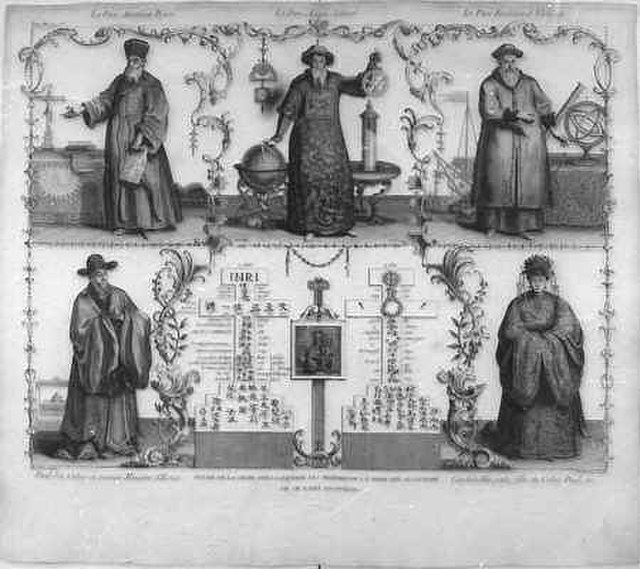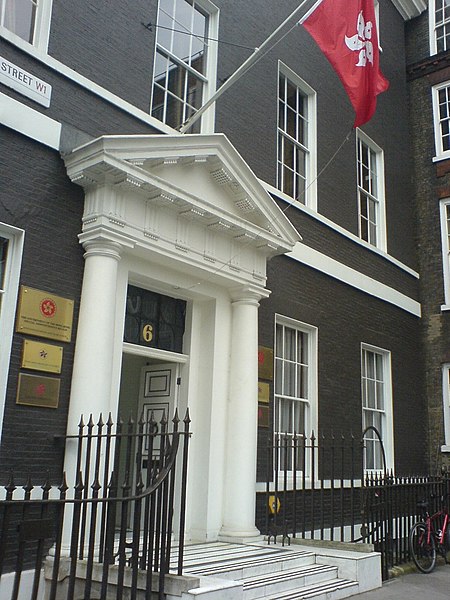Macau is a special administrative region (SAR) of the People's Republic of China. It was leased to Portugal in 1557 as a trading post in exchange for a symbolic annual rent of 500 tael. Despite remaining under Chinese sovereignty and authority, the Portuguese came to consider and administer Macau as a de facto colony. Following the signing of the Treaty of Nanking between China and Britain in 1842, and the signing of treaties between China and foreign powers during the 1860s, establishing the benefit of "the most favoured nation" for them, the Portuguese attempted to conclude a similar treaty in 1862, but the Chinese refused, owing to a misunderstanding over the sovereignty of Macau. In 1887 the Portuguese finally managed to secure an agreement from China that Macau was Portuguese territory. In 1999 it was handed over to China. Macau was the last extant European territory in continental Asia.
St. Paul's Cathedral in the 19th century by George Chinnery (1774–1852)
A Chinese official and a woman from Macau, 1880.
The mission of the Jesuits used Macau as a point of departure & formation during the 16th century.
The full title awarded to Macau by King Joao IV is still displayed to this day inside the Leal Senado, though the building and emblem itself date from the 19th century.
Special administrative regions of China
The special administrative regions (SAR) of the People's Republic of China are one of four types of province-level divisions of the People's Republic of China directly under the control of its Central People's Government, being integral areas of the country. As a region, they possess the highest degree of autonomy from China's central government. However, despite the relative autonomy that the Central People's Government offers the special administrative regions, the National People's Congress and its Standing Committee remains capable of enforcing laws for the special administrative regions.
Economic and Trade Office in London
Macao Economic and Commercial Office in Lisbon






